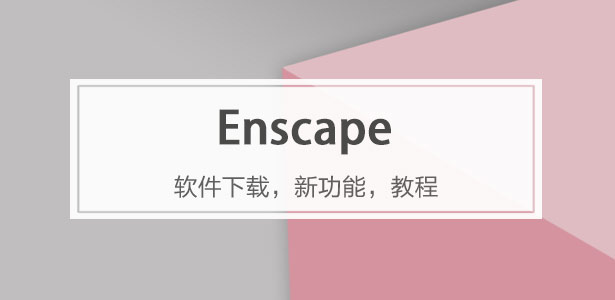
下載app免費領(lǐng)取會員




室內(nèi)設(shè)計? Architectkidd
建筑設(shè)計? Arkitek RekaJaya
項目地點? 文萊斯里巴加灣市
建成時間? 2024年
建筑面積? 3000平方米
本文英文原文由Architectkidd提供,由有方編譯。
科威特國駐文萊大使館位于斯里巴加灣市(Bandar Seri Begawan)的國家大道(Jalan Kebangsaan)區(qū)域。該項目由科威特外交部委托Architectkidd建筑事務(wù)所負責大使館及大使官邸的室內(nèi)設(shè)計,建筑設(shè)計由文萊本土建筑事務(wù)所Arkitek Rekajaya完成。
The Embassy of the State of Kuwait in Brunei is located in the Jalan Kebangsaan area in Bandar Seri Begawan.? Architectkidd was selected to design the interior spaces for the Embassy and Ambassador residences by the Ministry of Foreign Affairs of Kuwait along with Brunei architecture studio Arkitek Rekajaya.


由于眾多外交使團和政府機構(gòu)的存在,斯里巴加灣市的使館區(qū)及國家大道區(qū)域具有較強的國際化氛圍。該區(qū)域的建筑常常與自然環(huán)境融合,因為在文萊即使是城市地區(qū),也擁有郁郁蔥蔥的熱帶植被,以及開闊的綠地與花園。
The Embassy District and Jalan Kebangsaan area in Bandar Seri Begawan have an international influence due to the presence of diplomatic missions and governmental buildings. Buildings in the district often blend into their natural surroundings as even urban areas in Brunei possess lush, tropical vegetation with open green spaces and gardens.
項目之初,科威特外交部即明確表示,他們不希望新設(shè)計采用傳統(tǒng)科威特或伊斯蘭建筑風格。因此設(shè)計團隊摒棄了直接的文化象征與表現(xiàn)形式,轉(zhuǎn)而探索如何以更抽象和功能性的方式體現(xiàn)公共與公民精神。設(shè)計團隊關(guān)注合作、開放和公共空間的營造,并通過材料、細部、光線與空間形式的設(shè)計,表達這些價值觀念,使建筑空間成為具備公共意義與文化內(nèi)涵的場所。
From the beginning the Ministry of Foreign Affairs of Kuwait expressed that they did not want the new design to resemble traditional Kuwaiti architecture or Islamic architecture. Architectkidd looked beyond direct symbolism and overt cultural representations and instead focused on how we could embody civic and public virtues in more abstract and functional ways. We focused on values such as cooperation, openness, and enabling public spaces within our design. We tried to express these values through design choices in materials, details, light, and form - qualities that emphasize the role that the building environment can represent as a public institution and ‘civic cultural’ space.


進入大使館,首先映入眼簾的是門廳。這里設(shè)有一處帶有高天窗的中庭,作為通往接待大廳、圖書館、員工辦公區(qū)及其他功能空間的門戶。這一區(qū)域是大使館中最具公共屬性的空間,同時也作為接待大廳的等候與預(yù)備區(qū),具備靈活使用的可能性。
The Foyer is the first experience upon entering the Kuwait Embassy.? It features an atrium space with a tall skylight. The Foyer acts as a portal to the reception hall, library, staff offices and other functions. This area is the most public part of the embassy and is an adaptable space that also serves as a prefunction area for the reception hall.
接待大廳是大使館中一個獨特的空間,也被視為其核心。如今,有了接待大廳,科威特大使館現(xiàn)在可以在文萊策劃和組織公共和文化活動。室內(nèi)空間流動的自然屬性啟發(fā)了設(shè)計團隊,在空間布局中巧妙引導(dǎo)流線。例如,從入口望向門廳,一排垂直木質(zhì)格柵在頂部投下光影;走廊與展廳采用長而彎曲、波浪狀的木墻,引導(dǎo)視線通向中庭與主樓梯。
The Reception Hall is a distinct space and heart of the embassy. With the Reception Hall, the Kuwait Embassy can now curate and organize public and cultural events in Brunei.? The fluid nature of the interior spaces led to the idea for the design to provide subtle directionality and wayfinding within the different spaces. Looking towards the foyer from the entrance for example, a row of vertical wooden louvers filter and project daylight from above. The gallery and hallways have long, curved and rippled wood walls to guide the users’ eyes forward towards the atrium and main staircase.




材料和飾面的設(shè)計增強了室內(nèi)空間的開闊感。選擇這些材料是因為它們堅固耐用,適用于長期使用,同時也因為它們能夠增強空間的視覺和觸覺體驗。
The materials and finishes were designed to enhance the expansive nature of the interior spaces. They were chosen because they were robust to ensure longevity and practical performance, but also for their ability to enhance visual and tactile qualities of the space.
飾面的設(shè)計尤為關(guān)鍵。設(shè)計中運用了天然木材和石灰石等具有紋理感的材料,能夠柔和地反射光線,營造出層次感與動感。這些材料既豐富了視覺效果,也提升了觸感體驗。天然木材的色調(diào)根據(jù)其如何反射日光而精心挑選,營造出溫暖的室內(nèi)氛圍。而墻面板和大理石地面的圖案設(shè)計,則進一步豐富了人與空間之間的互動。
The design of the finishes was key to this. The use of textured surfaces and forms such as natural wood and limestone help reflect light in subtle ways to create a sense of depth and movement. These textures enhance both the visual and tactile experience. The color of the natural wood was selected based on how it reflected daylight to enhance the warmth of the interior space. The patterning of surfaces such as the wall panels and marble stone flooring contributes to a multi-layered interaction with the space.




室內(nèi)項目的目標之一是營造一個溫馨、可親近的環(huán)境,讓穿行其中的人們能感受到觸覺上的愉悅。材料的紋理與開放的空間設(shè)計相輔相成,打造出更具沉浸感與吸引力的室內(nèi)環(huán)境。設(shè)計在材料如何與光線和觸感互動方面有著明確的意圖,要塑造體驗,還要確保美感不僅能被看到,更能被感受到。
The goal of the interior was to make the environment feel inviting and warm, and to provide moments of tactile delight as one moves through the space. The material textures, combined with the openness of the design, helps to create a more immersive and engaging interior. There was an intention in how the materials interact with light and touch to shape the experience, ensuring that beauty is felt, not just seen.
對于一座安全級別較高的建筑而言,室內(nèi)空間的這種開闊感是獨特的,也因此營造出一種非制度化、友好開放的氛圍,減少人們可能預(yù)期的封閉感。視線上的通透性延續(xù)了這種設(shè)計理念,空間之間保持視覺連貫,使整座大使館更具整體感。在視線貫通的空間中,大使館工作人員在白天主要在自然光下工作,人工照明減少到最低限度。
This expansiveness in the interior is unique for a building with heightened security, and helps create a welcoming, non-institutional atmosphere and reduces the sense of confinement that might be expected. The transparent approach continues with interior sightlines and visual connections between the spaces, creating a sense of continuity in the embassy. With unobstructed views of the surrounding areas, embassy staff work mostly in natural light during the daytime hours, with artificial light reduced to a minimum.



接待大廳的天花板設(shè)計極具視覺張力,以同心波浪形的圖案營造出深淺起伏的動態(tài)效果。每塊天花板模塊均由聚合材料雕刻而成,組合后形成聲學(xué)友好的三維表面。雕塑般的造型為空間增添了動感,而模塊的重復(fù)使用則營造出統(tǒng)一和諧的形式語言。燈光嵌入天花板的凹槽中,在突出細節(jié)的同時,營造出柔和的氛圍光,提升空間體驗。
The ceiling design in the reception hall is conceived as a visually striking and crafted pattern of concentric, undulating forms that create a dynamic interplay of depth and texture. Each panel was carved from polymer in shapes that, when combined, form an acoustic-friendly, three-dimensional surface. The sculptural quality of the design adds a sense of movement to the ceiling, while the repetition of the modules ensures a harmonious and unified formal language. Integrated lighting, embedded within the recessed patterns, accentuates the detailing and provides a soft, ambient glow, enriching the spatial experience.


這一項目重新定義了人們對大使館的印象——不再是傳統(tǒng)意義上堡壘式的政府建筑,而是一個更開放、流動、具有交流意味的空間。設(shè)計不強調(diào)防御性或權(quán)威感,而是通過材料的選擇和空間布局,營造出互動與溝通的氛圍。其精致的圖案與細節(jié)不斷變化,挑戰(zhàn)了人們對于大使館剛性、疏離的固有認知。天然木材與大理石等材料的應(yīng)用,加上柔和光線的滲透,使空間在保障安全性的同時,也傳達出溫暖與親切感。
This project redefines the perception of an embassy by moving beyond conventional, fortress-like governmental architecture and embracing more openness, fluidity and communication. Rather than creating an imposing or defensive structure, the interior aims to foster an atmosphere of engagement through its material palette and spatial composition. The design, with its intricate patterns, is layered and ever-evolving, challenging the notion that embassies must feel rigid or unapproachable. The integration of natural materials such as wood and marble, along with the soft diffusion of light, creates a welcoming environment that balances the necessary security measures with warmth and hospitality.
這種設(shè)計理念與文萊的特質(zhì)相契合:一個長期以來以文化傳統(tǒng)、繁榮與外交關(guān)系聞名的國家,如今也正逐步擁抱更具包容性的旅游業(yè)與接待文化。希望新的大使館不僅能作為外交前哨,也能成為承載公共價值的平臺。通過模糊正式與自在、安全與開放之間的界限,設(shè)計重新想象了大使館作為文化橋梁的可能性。
This design approach resonates with Brunei, a nation that has for a long time been known for its heritage, prosperity and diplomatic ties, and in more recent times, increasing its outlook towards hospitality and tourism. Hopefully the new embassy can transcend its role as a diplomatic outpost and act as an ambassador of civic values with respect. By softening the boundaries between formality and warmth, security and openness, it reimagines the way an embassy can function as a cultural bridge.



“我們希望新科威特國駐文萊大使館不僅是一座外交場所,也能成為對話與交流的平臺,展現(xiàn)出文萊身份的一種全新表達。通過提升公眾可達性,大使館將為更多人提供觀察外交實踐的機會,使國際關(guān)系變得更具現(xiàn)實感與包容性。在大使館職能不斷擴展的今天,我們相信這一項目為區(qū)域關(guān)系與國家交流提供了新的設(shè)計路徑,也為未來大使館建筑的公共性提出了有力的范例。”
We hope the new Kuwait Embassy will function not only as a diplomatic hub but also as a platform for dialogue as well as a welcome expression of Brunei’s identity as well. By offering greater public access, the embassy could allow more people to observe diplomacy in action, making international relations feel more tangible and inclusive. As embassies increasingly take on roles beyond their traditional diplomatic functions, we think this project could set a precedent for how design can contribute to a more engaged approach to regional relations and fostering connections among nations.



設(shè)計圖紙 ▽


完整項目信息
Project: Embassy of the State of Kuwait
Location: Bandar Seri Begawan, Brunei
Architect: Arkitek RekaJaya
Interior Architect: Architectkidd
Photography: Luke Yeung
本文英文原文及圖片由Architectkidd授權(quán)有方發(fā)布,編譯版權(quán)歸有方空間所有。歡迎轉(zhuǎn)發(fā),禁止以有方編輯版本轉(zhuǎn)載。
本文版權(quán)歸腿腿教學(xué)網(wǎng)及原創(chuàng)作者所有,未經(jīng)授權(quán),謝絕轉(zhuǎn)載。

上一篇:政策新聞 | 遼寧省農(nóng)村村民住宅建設(shè)抗震技術(shù)圖集項目的成交公示
下一篇:BIM建筑|北京建院項目:北京市大興區(qū)第一中學(xué)西校區(qū)












推薦專題
- BIM建筑|30張照片讀懂巴拉干
- BIM建筑|阿科米星新作:古北社區(qū)管理用房“變身”共享公共空間
- 建筑賞析|共生作品|廣州地鐵·瓏曜上城
- BIM建筑|非常建筑新作:開門見山,西華大學(xué)宜賓產(chǎn)教融合實訓(xùn)基地
- 建筑賞析|打工人的胃與社區(qū)的客廳
- BIM建筑|“火炬重燃“,紐約325米超高層大廈復(fù)工
- BIM建筑|2025年AIA“全球十大建筑”揭曉,上海天文館位列其中
- 建筑賞析|麓湖伊甸島:在儀式和松弛間一箭穿心
- BIM建筑|Z Car Club:當汽車成為空間主角 / 1949品牌咨詢
- BIM建筑|長沙奧體中心,實施方案多圖首公開 / 哈工大設(shè)計院+湖南設(shè)計






























